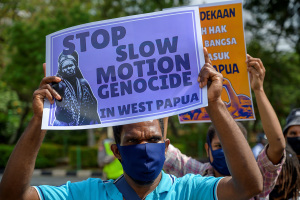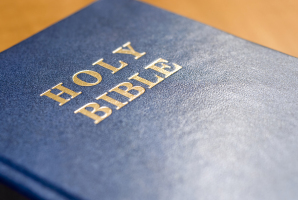Egypt's New Draft Constitution Undermines Religious Freedom
Egypt's 2012 constitution, drafted and adopted under President Morsi, reflected the Muslim Brotherhood's Islamist goals, giving prominence to Sunni sharia and restricting the rights of non-Muslims. As my colleague and Egypt analyst Samuel Tadros observed on NRO last December, it was a "clear setback for religious freedom."
Undermining religious freedom, of course, is not a small matter, not a mere nuisance to a few outliers. In Egypt, Morsi's Islamist constitution helped provoke a popular uprising by a broad range of groups opposed to the state's forcible imposition of Islamism, which in turn led to the military overthrow of the government on July 3.
The constitution was immediately suspended. "Suggested" articles for a new one, determined by a ten-member government-appointed committee, have been drafted and, over the past few days, have leaked out.
So what does this preliminary draft have to say on the critical issues of a civil, secular state and of securing rights to religious freedom, not only for the Coptic minority but for all Egyptians who resist religious compulsion under a sharia state?
As an article The Washington Post points out today, the preliminary draft "repeals a move by Morsi to strengthen the role of Islamic law in Egypt." This refers to the dropping from the new draft the notorious Article 219 of the 2012 constitution which had defined "the principles of sharia" to include "its total evidence, its fundamental and jurisprudence basis, its accepted sources in the doctrines of Sunnis." Also axed were an article establishing a Shura council, an Islamic political structure; another article providing that Al Azhar University, an ancient (founded in the tenth century) Sunni center of learning, was to be consulted on matters of sharia; and a clause (in article 44 of the 2012 constitution) that raised to the constitutional level Islamic anti-blasphemy codes, though such codes remain enshrined in law.
On the other side of the ledger, Article 2 of the draft constitution continues to provide "the principles of sharia" as the "main source of law."
Rights, freedoms, and gender-equality provisions continue to be conditioned on whether they are curbed by other laws.
And Article 44 specifies that houses of worship can be constructed for the "heavenly religions" (Muslims, Jews and Christians) with what it now euphemistically terms government "facilitation." This no doubt means that building churches would continue to be restricted by the state, even now, after rampages by Muslim Brotherhood supporters and their allies this past month have left scores of churches in dire need of reconstruction. It also means that Baha'is, Hindus, and other adherents of religions, as well as disfavored Muslims, would have no constitutional right to build houses of worship.
The Washington Post makes much of the fact that the draft eliminates political parties based on religion, but such bans were seen before in Egypt's constitution, and laws and didn't stop the Muslim Brotherhood from establishing its Freedom and Justice Party, or Salafists from forming Al-Nour and other Islamist parties. The media site Al Monitor, whose reports are drawn from news outlets around the Middle East, has a more detailed analysis of the leaked preliminary draft.
The draft next goes to a 50-member committee appointed from various sectors of society, which has 60 days to finalize it. It will then be voted on in a popular referendum later this fall.
A constitution should express the highest aspirations of a nation. But what if the people of that nation hold competing and even irreconcilable visions of society? The Egyptian answer seems to be a fudge factory.




























